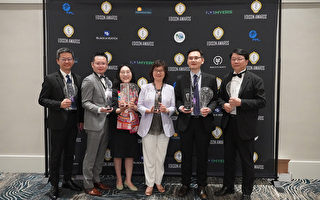【大纪元2014年04月10日讯】(大纪元记者黄捷瑄编译报导)来自9个国家、长期观察台湾社会发展的38位学者,在太阳花即将“转守为攻,出关播种”之际,发表公开信给太阳花学运及总统马英九,信中赞扬台湾学生的理性、平和,且强调,全世界都在关注总统先生能否为了台湾拿出智慧与意愿,与学生及公民一起守护台湾的民主成就。
这封有着美国资深两岸问题专家谭慎格(John Tkacik)及迈阿密大学政治学教授金德芳(June Dreyer)等38名国际学者及作家联署的公开信提到,他们乐见台湾1980年代的民主转型,以及前总统李登辉及陈水扁时代民主更加巩固,也肯定台湾在国际社会争取平等地位的诉求。
然而,过去6年,他们在许多场合深刻感到“必须表达对自由、民主、人权遭到侵蚀的忧虑。现在的执政当局正以台湾好不容得来的自由与民主为代价向中共靠拢。”
对于学生以占领立法院反对政府强行通过〈两岸服务与贸易协议〉的行为,学者们完全理解,而且支持学生“和平、合理、理性的手段”。
信中提到,这项“极度不寻常”的行动是对政府“漠不关心来自社会的关切、玩弄民主,所造成的挫折感的累积效应,他们针对的不只是《服贸协议》本身,还包括政府偷偷摸摸企图使其生效的行为。”
“法治,意味着政府属于人民、与人民同在,也为了人民而存在。学生们以非常具有说服力的方式表示,政府要用法律保护弱势,使那些没有声音的人悍卫自己的权利。如果政府没有办法尽到这样的责任,仍然对(社会的)关切没有回应,那么人民就会以行动重建这些基本的民主原则。”
“中共显然把协议作为‘统一’的踏板。”
“我们坚定的相信,台湾的民众为了民主努力着,想保留自由与民主。他们希望自己决定自己的未来,而不是被压抑的、不民主的中国所强迫。”
学者们强烈敦促总统马英九秉持台湾民主的精神及原则走向台湾亟需要的和解。
“您已经建立了两岸和解政策,但过程中却给中共领导人带来统一已近在咫尺的深刻印象。”
“这完全是个不利于台湾及其主权的伪前提。”
“没有人反对台海和平,但和平必须是明确认知到中国完全尊重台湾的主权及那里的人民有决定自己未来的自由。”
“在这一点上,没有理由相信北京的动机。”
学者们建言,和解的第一步是马政府跟随立法院长王金平化解僵局的行动,若马政府对此没有正面回应,将对台湾的国际形象及民主自由造成严重后果。总统应责无旁贷地确保讨论能够自由、民主、属于公民地进行。
经历了太阳花运动,学者们相信:“台湾能有一个光明的未来。国家大可为青年们能够为了自己的想法、理念而忍耐感到光荣。”
3月30日50万人的集会显示学生的行动有着广泛的社会基础。现在“就看您了,总统先生,为了台湾以及台湾的未来,展现与学生及其他公民团体共同努力的智慧与意愿。全世界都在注视着这件事。”
(责任编辑:毕儒宗)
《给太阳花学运与马总统的公开信》原文
Open letter to the Sunflower Movement and President Ma
As international academics and writers from nine different countries, we the undersigned are longtime observers of developments in Taiwan.
We lauded the transition to democracy in Taiwan in the late 1980s and rejoiced when the people of Taiwan moved to consolidate their democracy under former presidents Lee Teng-hui (李登辉) and Chen Shui-bian (陈水扁). We also applauded Taiwan’s quest for acceptance in the international community as a full and equal member.
However, during the past six years, we have on multiple occasions felt it necessary to express our deep concern about the erosion of freedom, democracy and human rights.
Under the current administration, Taiwan has been drifting toward China at the expense of the country’s hard-earned freedom and democracy.
This brings us to the present crisis surrounding the occupation of the Legislative Yuan by the Sunflower movement in protest against the way the Chinese Nationalist Party (KMT) government was pushing the highly controversial cross-strait service trade agreement through the legislature.
We fully appreciate the reasons the students took this action, and express our support for the peaceful, reasonable and rational approach they have taken.
This highly unusual act was the cumulative effect of the broadly felt frustrations with the way the government was making a mockery of democracy by not being responsive to concerns from many sectors of society, not only about the substance of the service trade agreement itself, but also the secretive way the government was attempting to enact it.
The precipitating factor was the highly irresponsible decision by KMT Legislator Chang Ching-chung (张庆忠), the chairman of a legislative committee, who declared the clause-by-clause review of the pact completed after 30 seconds, without any deliberations.
This patent violation of the basic principles of democratic procedure galvanized the students into action.
When one talks about the rule of law, then this means a government of, by and for all people.
The students’ actions show in a very eloquent way that the government needs to use the law to protect the weak and to allow those without a voice to defend their interests.
If the government fails in that responsibility and remains unresponsive to those concerns, people will act to restore those basic democratic principles.
As longtime observers of developments in Taiwan over the past decades, we believe that the concerns and anxiety are also prompted by the underlying political agenda.
The People’s Republic of China (PRC) obviously perceives this trade pact as a stepping stone toward “unification.”
We firmly believe that the people in Taiwan, having worked hard for their democracy, want to remain free and democratic. They want to determine their own future, and do not want to be coerced by a repressive and undemocratic China.
President Ma Ying-jeou (马英九), we urge you strongly to proceed in the spirit of, and in accordance with, the principles of Taiwan’s democracy, and move toward a much-needed reconciliation in Taiwan itself.
You have built your policies on rapprochement across the Taiwan Strait, but in the process have given PRC leaders the distinct impression that their goal of unification is within reach.
This is a false premise that is detrimental to Taiwan and its sovereignty.
Nobody is against peace across the Taiwan Strait, but peace must be brought about under the clear understanding that China fully respects Taiwan’s sovereignty and the freedom of the people in the nation to determine their own future.
At this point there is little reason to trust Beijing’s motives.
The first step toward a Taiwan consensus would be to follow the lead of Legislative Yuan Speaker Wang Jin-pyng (王金平) who proposed a way forward out of the present impasse.
Failure to respond positively will have serious consequences for Taiwan’s international image, and for the future of democracy and freedom in Taiwan.
It is also incumbent on you, as president, to ensure that the debate is continued freely, democratically and civilly.
Sending in riot troops with sticks and batons against peaceful students is not a responsible way to move forward. Instead it damages the nation’s credibility.
The Sunflower movement shows that Taiwan can have a bright future. The nation can be proud of what these young people have been willing to endure for their ideas and ideals.
Multiple opinion polls as well as the massive attendance of about 500,000 at the rally on Sunday March 30 attest to the movement’s very broad basis of support in society.
It is up to you, Mr President, to show wisdom and willingness to work with the students and other civic groups for Taiwan and its future. The world is watching.
Clive M. Ansley
Thomas Bartlett
Coen Blaauw
Gordon G. Chang
Elsa Chen
Wen-yen Chen
William Cox
Michael Danielsen
Rebecca Doran
Brian A. Dursum
June Teufel Dreyer
Brock Freeman
Stephen R. Halsey
William T. Hipwell
Michael Rand Hoare
Thomas G. Hughes
Richard C. Kagan
Bruno Kaufman
Jerome F. Keating
Hon. David Kilgour
Paul Kovenock
Steven I. Levine
Daniel C. Lynch
Victor H. Mair
The Very Reverend Bruce McLeod
Justin Ritzinger
Terence Russell
Michael Scanlon
Christian Schafferer
David Schak
Michael Stainton
Peter Tague
Reverend Milo L. Thornberry
John J. Tkacik Jr.
Arthur Waldron
Gerrit van der Wees
Joseph Weidenholzer
Michael Yahuda
(转载自:http://taiwancorner.org/?p=1534)







